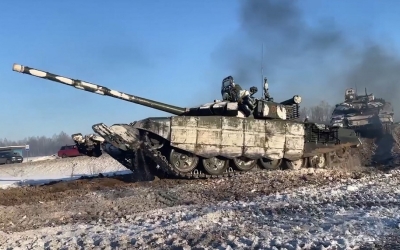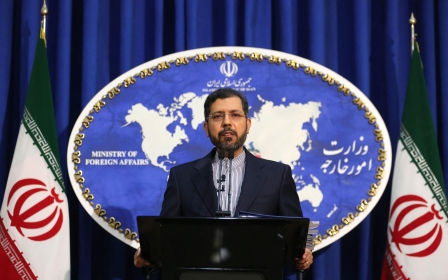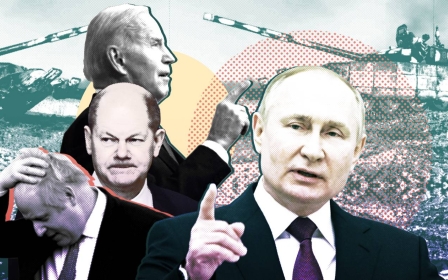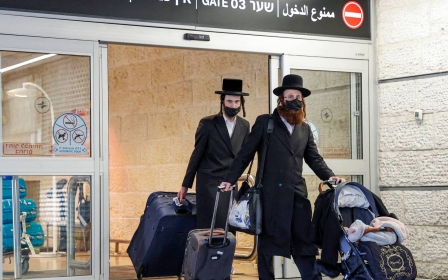Ukraine-Russia crisis: Syria follows Moscow in recognising breakaway regions
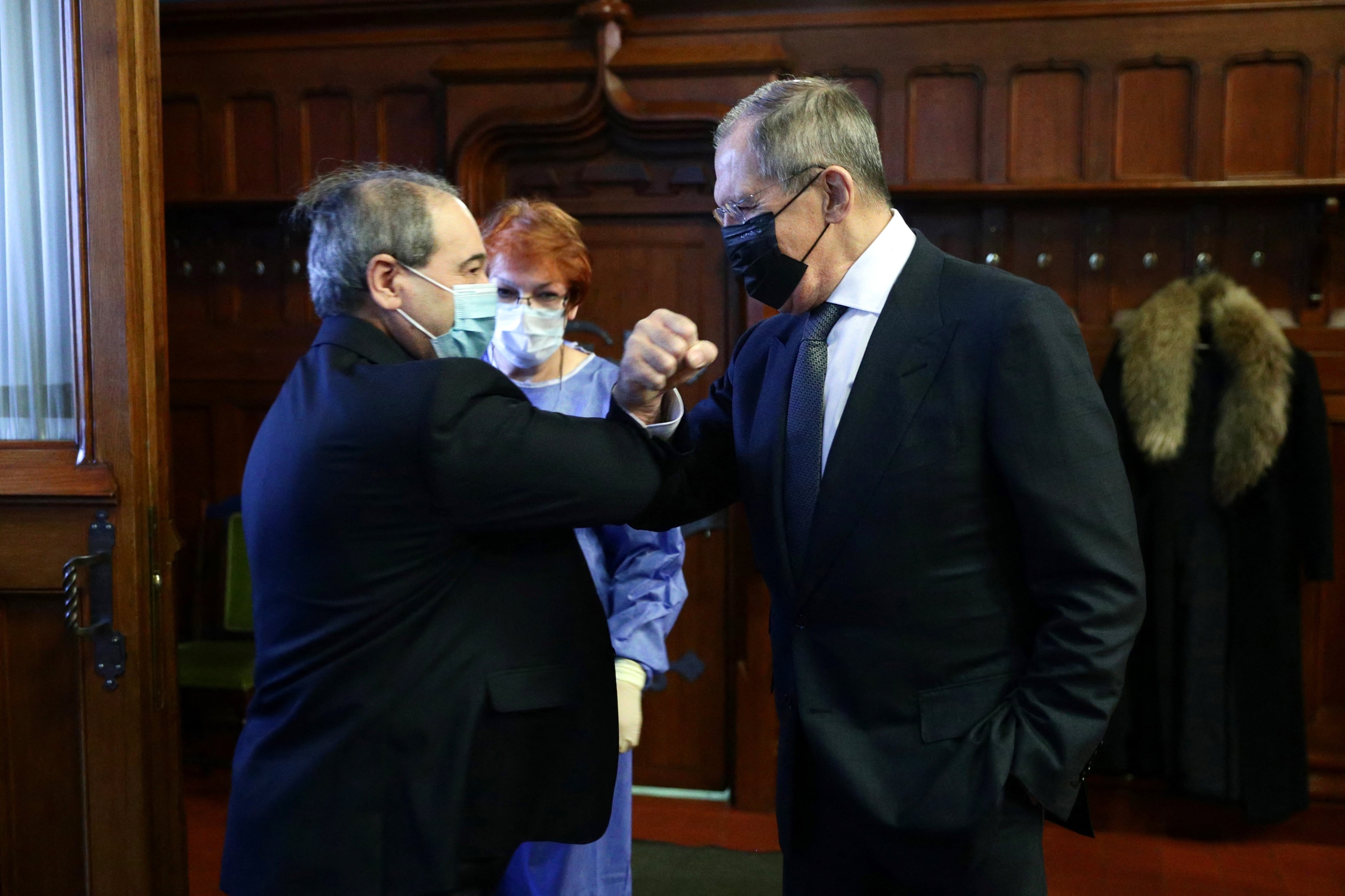
The Syrian government has followed Russia in recognising the independence of Ukrainian breakaway regions Donetsk and Luhansk on Tuesday, while calling for restraint from Nato and the United States.
Syrian Foreign Minister Faisal Mekdad said that his country would cooperate with the two new republics, adding that Russian President Vladimir Putin’s speech on Monday recognising the self-proclaimed republics represented a “watershed point in history”.
New MEE newsletter: Jerusalem Dispatch
Sign up to get the latest insights and analysis on Israel-Palestine, alongside Turkey Unpacked and other MEE newsletters
During a speech on Tuesday at the Valdai Club in Moscow, Mekdad said that "what the West is doing against Russia at present is similar to what it did against Syria during the terrorist war".
The foreign minister was referring to Syria's war which began in 2011 after a violent government crackdown on peaceful protests.
In a conversation with his Russian counterpart Sergei Lavrov, Mekdad said that "the campaign waged by the West against Russia of lies and deception is the same campaign that was launched against Syria previously".
Similarly, a senior figure of the Iran-aligned Houthi rebels in Yemen voiced his support for Russia.
Mohammed Ali al-Houthi, said that the Houthis “support the recognition of Donetsk and Luhansk as independent republics” and called on Nato to not slip “into a war intended to drain Russian resources”.
He tweeted his remarks on Monday night after Putin paved the way for Russian troops to enter eastern Ukraine as "peacekeepers".
'Imminent invasion'
In a televised speech, Putin said that "the situation in Donbas (in eastern Ukraine) has become acute and dangerous again," and that the region’s inhabitants have been subjected to “genocide” by Kyiv’s “regime”.
In recognising Donetsk and Luhansk, Putin dismissed the Minsk agreements, named after the capital of Belarus where they were signed in 2014 and 2015, which had attempted to secure a ceasefire between the two sides.
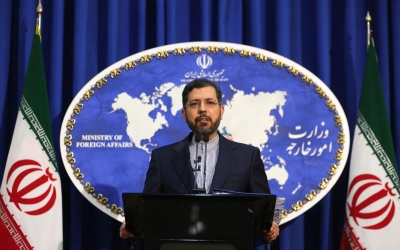
Despite the agreements, the Donbas region, of which the two self-proclaimed republics are a part, has witnessed continuous exchanges of fires since 2014.
The US and the European Union consider the move as a violation of international law and of Ukrainian sovereignty, which they said prepared the way for an “imminent invasion of Ukrainian territory”.
Syria has been a close ally to Moscow, with Putin supporting Syrian President Bashar al-Assad in his country's decade-long war.
Lavrov said on Tuesday that "Russia and Syria are in the process of expanding military-technical and economic cooperation between them," noting that Russia "will continue its joint work aimed at achieving a political solution to the crisis in Syria that guarantees the preservation of its sovereignty, territorial integrity and integrity".
Middle East Eye delivers independent and unrivalled coverage and analysis of the Middle East, North Africa and beyond. To learn more about republishing this content and the associated fees, please fill out this form. More about MEE can be found here.


